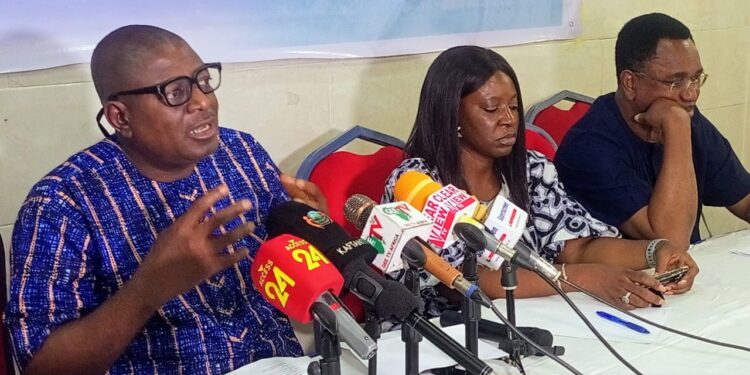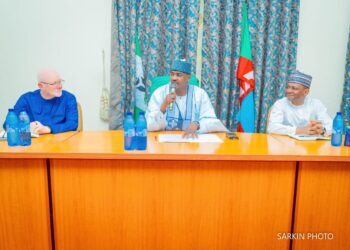The Corporate Accountability and Public Participation Africa (CAPPA) has said that the rising cases of hypertension and some cardiovascular diseases is due flarant abuse of salt intake in the country.
Executive Director, CAPPA, Mr Akinbode Oluwafemi, said this on Tuesday in Abuja at a forum on ‘Healthy Diets: Set salt targets to expand access to healthy foods’ on Tuesday in Abuja.
According to him, Nigerians are flouting of World Health Organization’s (WHO) on daily salt intake, with hypertension, mainly caused by an increased intake of salt or sodium, accounts for 12% of deaths in Nigeria.
The event was also attended by Dr Jerome Mafemi, Technical Advisor, Network for Health Equity and Development (NHED) and Mrs Vanessa Alfa, Coordinator Cardiovascular Research Unit, University of Abuja Teaching Hospital.
“Presently, Nigeria records an estimated daily salt consumption reaching up to 5.8grams per day, dangerously exceeding the WHOs recommended limit of 2 grams of sodium per day or less than 5 grams of salt per day, which is equivalent to just one teaspoon of salt daily,” Oluwafemi said.
He quoted the Non-Communicable Diseases Alliance, as saying that non-communicable diseases (NCDs) such as cardiovascular disease are the primary cause of death and disability worldwide.
He said that these alarming statistics are not surprising given the significant changes in the Nigerian diet over the past decade.
“The influx of processed foods and seasonings loaded with high sodium on local market shelves and the growth of unhealthy fast-food outlets has led to a nutritional transition in the country that poses a grave risk to public health.
“Added to this risk is the recent reports of unbranded and unmeasured seasoning overtaking the markets in Northern Nigeria. In no distant time, the woes of these unchecked sales of Monosodium glutamate will manifest.”
He urged the Federal Ministry of health and Social Welfare (FMHSW) and National Agency for Food and Drugs Administration and Control (NAFDAC) to take proactive steps to formulate healthy food policies and enforce them within the country.
He said, “As the yuletide beckons, many Nigerians will go back home with large quantities of over salted snacks and other products innocently, trusting that the government has done the needful. It is therefore imperative that we call on the government, especially the Ministry of Health and Social Welfare and NAFDAC to prioritise policy on mandatory salt targets in Nigeria.”
Mrs Alfa said that, the small chops that is gaining ground across the country is a recipe for uncontrolled and excessive salt intake.
She urged Nigerian to be wary of excessive salt intake in the name of seasoning foods and improving food tastes.
Dr Mafeni on his part, said that the campaign is a collaborative effort between NHED, CAPPA, and the Global Health Advocacy Incubator (GHAI).
He said that excessive salt consumption has become a pressing public health concern in Nigeria, contributing to the rising burden of NCDs such as hypertension, cardiovascular diseases, and stroke.
“Studies have shown that high salt intake is a major risk factor for these diseases, and it is estimated that NCDs account for 29% of all deaths in Nigeria.
He said that high salt intake is directly linked to increased blood pressure, which is a leading risk factor for cardiovascular diseases.
“Cardiovascular diseases are responsible for a significant number of premature deaths and disabilities in Nigeria.
“By reducing salt intake, we can significantly lower the incidence of hypertension and related diseases, leading to improved health outcomes and reduced healthcare costs,” he said.
He also urged the media to highlight the health risks associated with high salt intake and the benefits of reducing salt consumption, by providing accurate and evidence-based information to the public among other recommendations.











